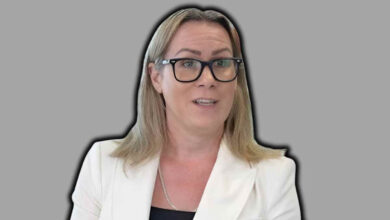Claire Dykta: Shaping the Future of Britain’s Energy System

Claire Dykta is one of the most influential voices in the UK’s modern energy landscape. As the Director of Strategy and Policy at the National Energy System Operator (NESO), she plays a pivotal role in shaping how the United Kingdom transitions towards a low-carbon, reliable, and affordable electricity future. Her work focuses on building long-term strategies that balance innovation, policy, and system stability, ensuring that the nation can achieve its Clean Power 2030 and Net Zero 2050 goals.
Early Life and Education
Claire Dykta’s journey began with a passion for understanding how large systems function and evolve. Unlike many leaders in the energy sector who come from engineering or science backgrounds, Claire pursued a degree in Managerial and Administrative Studies at Aston University. This business-focused education gave her a unique perspective on strategic management, economics, and leadership—skills that would later prove invaluable in navigating the complexities of the energy sector.
During her studies, she completed a placement year with Transco (part of National Grid), which marked her first exposure to the energy world. That experience sparked her interest in energy systems and sustainability. It also set the stage for a long-term career dedicated to transforming how Britain generates, distributes, and consumes electricity.
Career Path and Achievements
After graduation, Claire joined National Grid, where she quickly built a reputation for her analytical thinking and strategic insight. Over the years, she held several leadership positions related to energy markets, system planning, and corporate strategy. Her understanding of both the operational and policy aspects of energy systems helped her bridge gaps between government regulations, market frameworks, and engineering realities.
Today, as Director of Strategy and Policy at NESO, Claire Dykta oversees the strategic direction of the entire organisation. Her work ensures that long-term energy plans align with both national policy and consumer needs. She is responsible for driving the vision that supports decarbonisation while maintaining reliability and cost-effectiveness for the public.
NESO and the Energy Transformation
The National Energy System Operator (NESO) was established to deliver an integrated and forward-thinking energy strategy for Britain. Its mission is to ensure that the electricity system is not only secure and efficient but also sustainable in the long term. Claire Dykta’s strategic leadership is central to this mission.
Her team focuses on how to prepare the national grid for the increasing share of renewable energy sources such as wind, solar, and hydro. NESO’s priorities include accelerating grid connections for clean energy projects, enhancing system flexibility, and reforming electricity markets to better reward low-carbon technologies.
Under Claire’s direction, NESO works closely with government bodies, regulators, and energy companies to develop market mechanisms that encourage innovation. She promotes a “whole-system” approach, integrating data, technology, and policy into a unified vision of a smarter, cleaner grid.
Vision for a Decarbonised Future
Claire Dykta believes that the UK’s energy transition requires more than new technologies—it needs bold leadership and clear strategy. She often highlights that the shift to net zero is not just an environmental issue but also an economic and social transformation.
Her strategic focus includes several key areas:
- Clean Power 2030 – ensuring that Britain’s electricity system runs on mostly clean energy by the end of the decade.
- Market Reform – redesigning electricity markets to fairly value flexibility, storage, and demand-side participation.
- Connections Reform – speeding up the process for new renewable projects to connect to the grid.
- System Resilience – maintaining reliability even as the grid becomes more complex and decentralised.
- Digital Transformation – leveraging data and artificial intelligence to improve system forecasting and planning.
Claire sees these areas as deeply interconnected. For her, successful decarbonisation means combining innovation with solid economic planning and fair consumer outcomes.
Leadership and Diversity
One of the defining aspects of Claire Dykta’s leadership is her advocacy for diversity and inclusion. She has often spoken about how different perspectives are essential for solving complex energy challenges. Entering a technical and male-dominated industry as a non-engineer gave her a unique understanding of the importance of diverse voices in leadership roles.
She actively supports mentorship programmes and is involved in initiatives that encourage women and young professionals to pursue careers in energy and sustainability. Her leadership style is known to be collaborative, forward-looking, and focused on empowering teams to think creatively about the future.
Challenges in the Energy Transition
The UK’s journey toward net zero comes with immense challenges, and Claire Dykta is at the forefront of addressing them. One major issue is balancing decarbonisation with energy security. As renewable generation increases, the system must still ensure consistent supply during periods when wind or solar output is low.
Another challenge is the pace of infrastructure development. Many renewable projects are waiting years for grid connection. NESO, under Claire’s strategic direction, is reforming this process to speed up approvals and strengthen transmission capacity.
There’s also the question of affordability. Energy transition must not burden consumers. Claire’s strategy focuses on market reforms that keep prices fair while ensuring that investment flows into clean technologies. She recognises that the transition must be socially inclusive, ensuring benefits are felt across all communities.
Public Engagement and Influence
Claire Dykta is not just an executive; she is also a thought leader. She frequently appears at major energy conferences and forums, including Utility Week Live and the Prosper Forum in Scotland. She uses these platforms to share insights on the challenges of achieving a clean power system by 2030.
Her interviews and speeches often centre on practical optimism—acknowledging the immense challenges of decarbonisation while emphasising that progress is both achievable and necessary. She has a strong media presence and is widely respected among policymakers, industry experts, and environmental advocates for her clarity and strategic foresight.
Innovation and Technology in Strategy
Technology is at the heart of Claire Dykta’s approach to system strategy. She supports the integration of digital tools, artificial intelligence, and predictive analytics to help manage the increasing complexity of the grid.
Her vision for NESO involves using data to anticipate demand patterns, optimise renewable output, and balance supply in real time. This smart approach reduces costs, enhances efficiency, and supports the overall decarbonisation goal. She also promotes collaboration between data scientists, engineers, and policymakers, ensuring that decisions are grounded in both evidence and practicality.
The Broader Impact of Her Work
Claire Dykta’s influence extends beyond the borders of NESO. Her strategies shape investment decisions, regulatory frameworks, and even consumer behaviour. The policies she helps design affect every part of the UK’s energy ecosystem—from renewable developers to households.
By promoting long-term planning and systemic thinking, she has become a key figure in ensuring the UK remains on track to meet its climate targets. Her work demonstrates that sustainability and reliability can coexist, provided there is clear direction and decisive action.
Future Outlook
Looking ahead, Claire Dykta’s strategic vision continues to evolve as new challenges emerge. The next decade will be crucial for the UK’s energy transformation. The integration of offshore wind, hydrogen, battery storage, and electric vehicles will require constant adaptation and coordination across sectors.
Claire’s approach remains focused on collaboration, innovation, and evidence-based policy. She envisions a future where every part of the system—from producers to consumers—plays an active role in creating a sustainable energy ecosystem. Her ongoing commitment to leadership, diversity, and strategic foresight makes her one of the most important figures guiding the UK’s path to net zero.
Conclusion
Claire Dykta represents a new generation of energy leaders—strategic, inclusive, and deeply committed to the future of clean energy. Through her role at the National Energy System Operator, she is helping to shape policies and strategies that will define Britain’s energy future for decades. Her emphasis on innovation, data, and collaboration ensures that the energy transition is not only achievable but also equitable and resilient.
Her story is one of vision, persistence, and transformation. As the UK strives toward a carbon-free power system, Claire Dykta’s leadership stands as a model of how strategic thinking and inclusive leadership can drive meaningful, long-term change.



